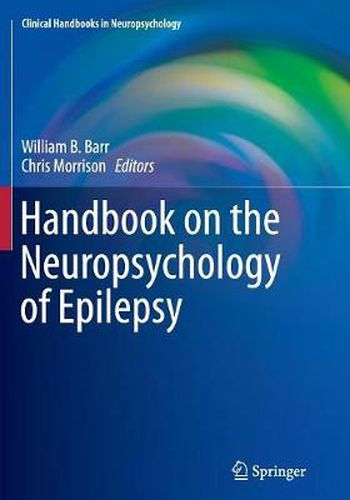Readings Newsletter
Become a Readings Member to make your shopping experience even easier.
Sign in or sign up for free!
You’re not far away from qualifying for FREE standard shipping within Australia
You’ve qualified for FREE standard shipping within Australia
The cart is loading…






This title is printed to order. This book may have been self-published. If so, we cannot guarantee the quality of the content. In the main most books will have gone through the editing process however some may not. We therefore suggest that you be aware of this before ordering this book. If in doubt check either the author or publisher’s details as we are unable to accept any returns unless they are faulty. Please contact us if you have any questions.
Once feared and misunderstood even among the medical community, epilepsy has since largely been demystified. Besides the characteristic seizures, various cognitive, behavioral, and emotional difficulties are recognized as associated with the condition, and patients are finding relief in medical management and/or surgical intervention. Not surprisingly, neuropsychology has emerged as a major component in treatment planning, program development, and assessment of surgical candidates.
Geared toward beginning as well as veteran clinicians, the Handbook on the Neuropsychology of Epilepsy offers readers a skills-based framework for assessment and treatment, using current evidence and standardized terminology. Expert coverage reviews widely-used methods for evaluating key aspects of patient functioning (MRI, MEG, electrocortical mapping, the Wada test), and presents guidelines for psychotherapeutic and cognitive remediation strategies in treating comorbid psychiatric conditions. Given the diversity of the patient population, additional chapters spotlight issues specific to subgroups including high- and low-functioning as well as geriatric and pediatric patients. This integrative hands-on approach benefits a range of practitioners across medical and neurological settings. Topics featured in the Handbook:
Neuropsychological
assessment across the lifespan. Evaluating
the epilepsy surgical candidate: methods and procedures. The
Wada test: current perspectives and applications. Assessing
psychiatric and personality disorders in the epilepsy patient.
Evaluation
and management of psychogenic non-epileptic attacks. Neuropsychological
assessment with culturally diverse patients.
Practical and flexible in its coverage, the Handbook on the Neuropsychology of Epilepsy serves not only neuropsychologists and neurologists but also primary care physicians such as internists, family physicians, and pediatricians.
$9.00 standard shipping within Australia
FREE standard shipping within Australia for orders over $100.00
Express & International shipping calculated at checkout
This title is printed to order. This book may have been self-published. If so, we cannot guarantee the quality of the content. In the main most books will have gone through the editing process however some may not. We therefore suggest that you be aware of this before ordering this book. If in doubt check either the author or publisher’s details as we are unable to accept any returns unless they are faulty. Please contact us if you have any questions.
Once feared and misunderstood even among the medical community, epilepsy has since largely been demystified. Besides the characteristic seizures, various cognitive, behavioral, and emotional difficulties are recognized as associated with the condition, and patients are finding relief in medical management and/or surgical intervention. Not surprisingly, neuropsychology has emerged as a major component in treatment planning, program development, and assessment of surgical candidates.
Geared toward beginning as well as veteran clinicians, the Handbook on the Neuropsychology of Epilepsy offers readers a skills-based framework for assessment and treatment, using current evidence and standardized terminology. Expert coverage reviews widely-used methods for evaluating key aspects of patient functioning (MRI, MEG, electrocortical mapping, the Wada test), and presents guidelines for psychotherapeutic and cognitive remediation strategies in treating comorbid psychiatric conditions. Given the diversity of the patient population, additional chapters spotlight issues specific to subgroups including high- and low-functioning as well as geriatric and pediatric patients. This integrative hands-on approach benefits a range of practitioners across medical and neurological settings. Topics featured in the Handbook:
Neuropsychological
assessment across the lifespan. Evaluating
the epilepsy surgical candidate: methods and procedures. The
Wada test: current perspectives and applications. Assessing
psychiatric and personality disorders in the epilepsy patient.
Evaluation
and management of psychogenic non-epileptic attacks. Neuropsychological
assessment with culturally diverse patients.
Practical and flexible in its coverage, the Handbook on the Neuropsychology of Epilepsy serves not only neuropsychologists and neurologists but also primary care physicians such as internists, family physicians, and pediatricians.